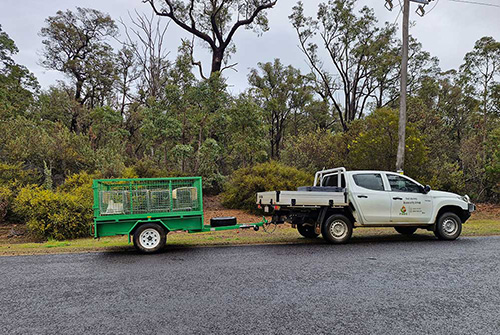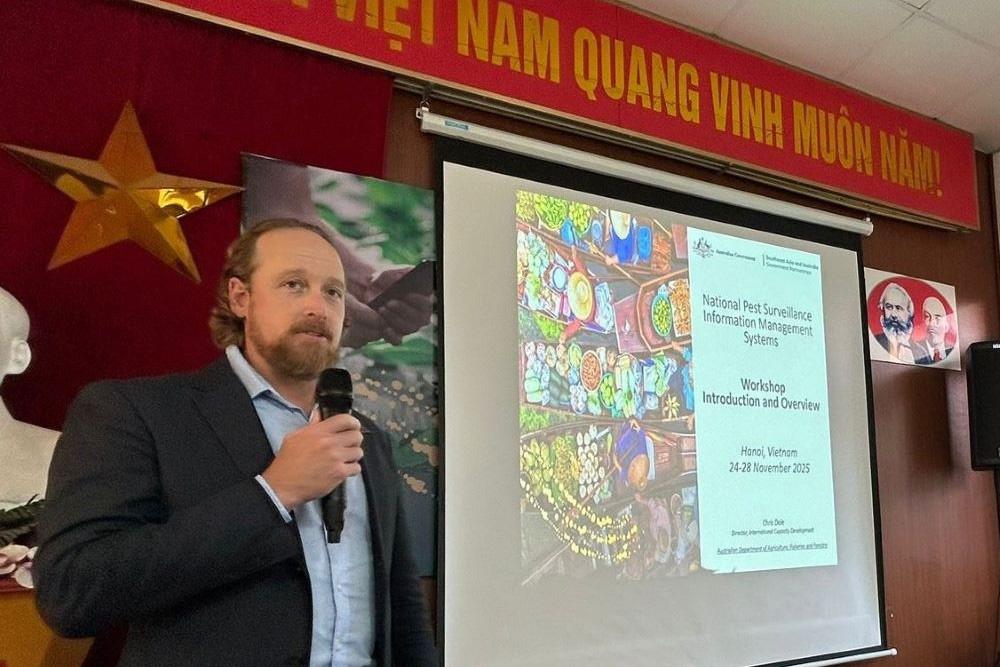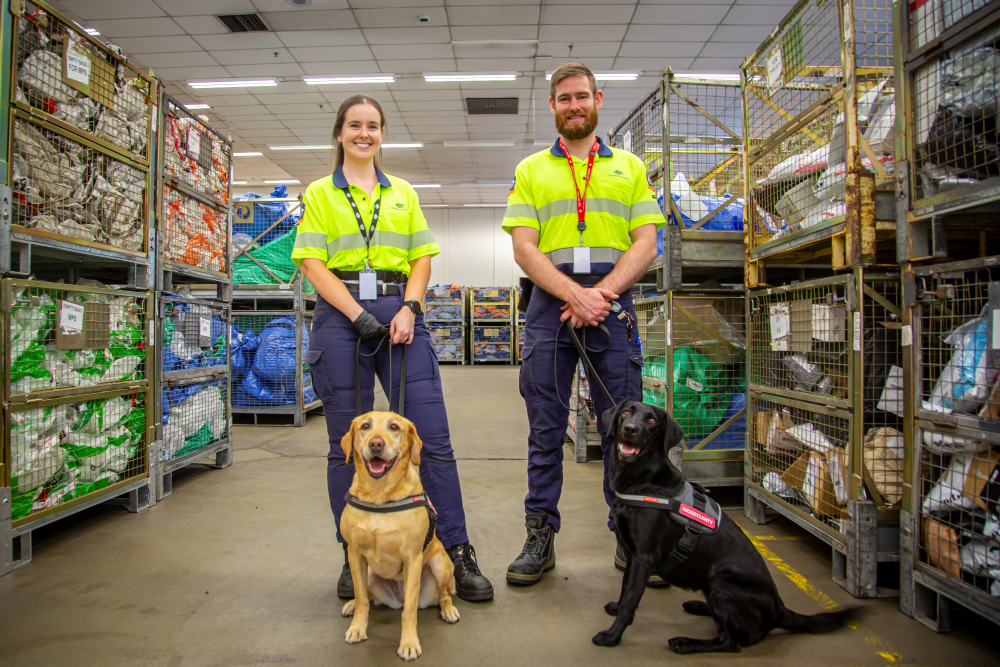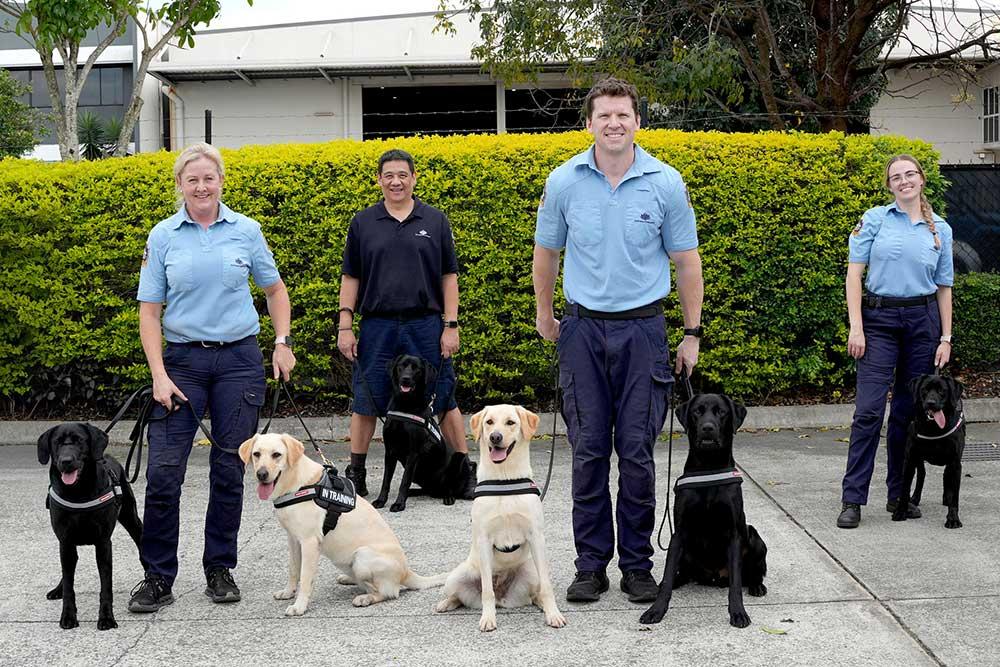Peel Harvey Biosecurity Group
The group is a standout leader in community-driven biosecurity in Western Australia. What sets them apart is their commitment to protecting agriculture, native ecosystems and community health. Through active pest management and targeted education programs, they have built trust, empowered local action and created a model that others can look to for inspiration.
Since 2014, the group has led biosecurity efforts in the Peel–Harvey region. Their role as a biosecurity group is defined under the Biosecurity and Agriculture Management Act 2007 (WA), which enables them to use funds from the state’s Declared Pest Rate to support landholders in the control and management of established declared pests.
Their strategy, shaped by the CSIRO’s Impact Framework, ensures that activities are impactful and aligned with community needs. The group’s operational plans reflect seasonal and ecological conditions, which ensures timely and targeted interventions against declared pests such as rabbits, foxes and feral pigs. Their annual rabbit biocontrol project has developed from an area-wide calicivirus release (RHDV1 K5 strain) to a highly targeted application based on blood sampling that tests for immunity. This approach demonstrates the dynamic nature of delivering biosecurity services using science-based pest management.
Through workshops, newsletters and the Peel–Harvey Pesky Pests schools outreach program, the group raises awareness about biosecurity risks and the importance of community involvement. Their newsletters are a key communication tool, keeping stakeholders updated on biosecurity issues and upcoming events. The group provides landholders and the community with best-practice information and the tools they need to manage pests.
The polyphagous shot-hole borer is an invasive beetle that destroys trees and agricultural produce. After the beetle was detected in Perth in 2021, the biosecurity group played a key role in raising local community awareness. This was important because part of the locality was under a quarantine area notice. To address the threat of this invasive beetle, the group undertook detection training to support local monitoring efforts and circulated monitoring resources to community members and schools. The group supported early detection of the beetle by promoting the Department of Primary Industries and Regional Development’s online training resources, and boosting community surveillance and public engagement.
The group has contributed to environmental biosecurity by implementing strategic pest control and habitat restoration programs that have helped protect the region’s natural heritage and enhanced biodiversity. Collaborative projects include seedling giveaway events, bee hotel school holiday programs and a 3-year initiative to control cotton bush in Serpentine National Park, highlighting their commitment to conserving native species and promoting environmental resilience.
Their success stems from a strong collaborative approach. Over the past year, they launched the Cross-Tenure Invasive Species Program, a project that fosters collaboration between public and private landholders in the Peel–Harvey region to manage declared pest hot spot areas that extend beyond fence lines. The project funds private land managers to deliver integrated management plans that achieve long-term outcomes and reduce community concerns.
The group’s engagement with First Nations communities supports Indigenous knowledge integration into biosecurity strategies. They also contribute to regional forums and policy development, reinforcing their commitment to collective action and continuous improvement in biosecurity practices.
Watch a video about their work
Introduction
This is the accessible text transcript of the 2025 Australian Biosecurity Awards winner video featuring Suzanne Winterton and Teele Hooper-Worrell.
Transcript
Suzanne Winterton: We’re the Peel Harvey Biosecurity Group (PHBG), and our mission is to help landholders in our region manage declared pests, including invasive weeds and feral animals, so that our farms thrive and our native ecosystems stay healthy.
PHBG lends pest control equipment, like weed wipers and traps, to locals.
We also hold regular workshops and events, provide information and advice on tackling different pests on different properties, and we also run programs in which we work to bring together the local community with their neighbours or government agencies to tackle local hotspots and pest problems across property lines.
Teele Hooper-Worrell: I’m Teele Hooper-Worrell, the Executive Officer of the Peel Harvey Biosecurity Group.
My team and I are very proud to have been nominated for the 2025 Australian Biosecurity Awards in the Community category.
Suzanne Winterton: This award recognises the power of community-led, region-wide biosecurity.
It's both a symbol and a reminder that local voices, local action and coordinated effort truly matter and can make a real difference in protecting the biosecurity of our farmland and native flora and fauna.
For PHBG, biosecurity means looking after the Peel Harvey region from the ground up, protecting homes, pets, soils, livestock and native species.
It’s about bringing together neighbours, schools, councils, farmers and land managers to keep our land healthy, productive and resilient well into the future.
Teele Hooper-Worrell: We’d like to say a massive thank you to our nominators and to the department for continuing to empower the community to act on biosecurity issues.
Photos




